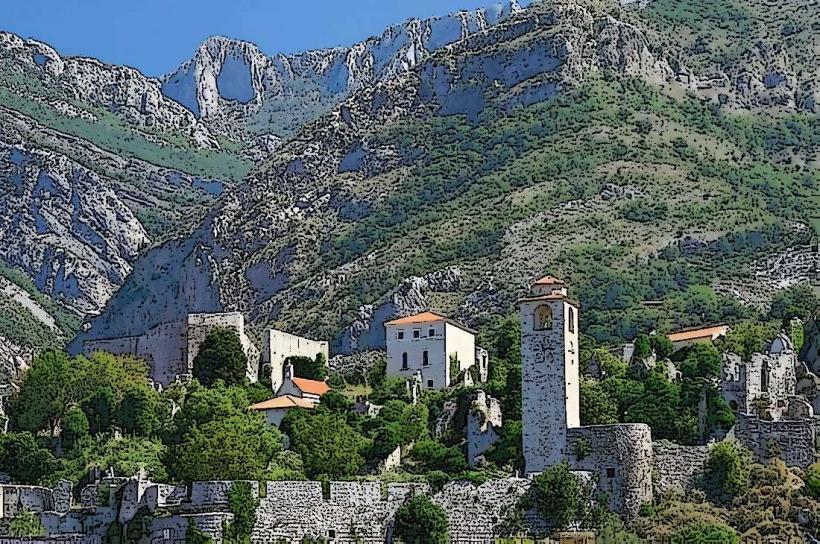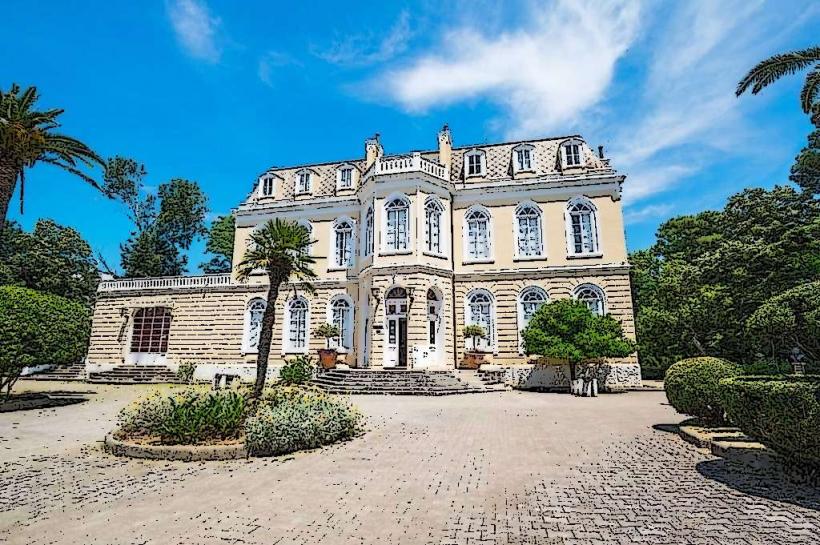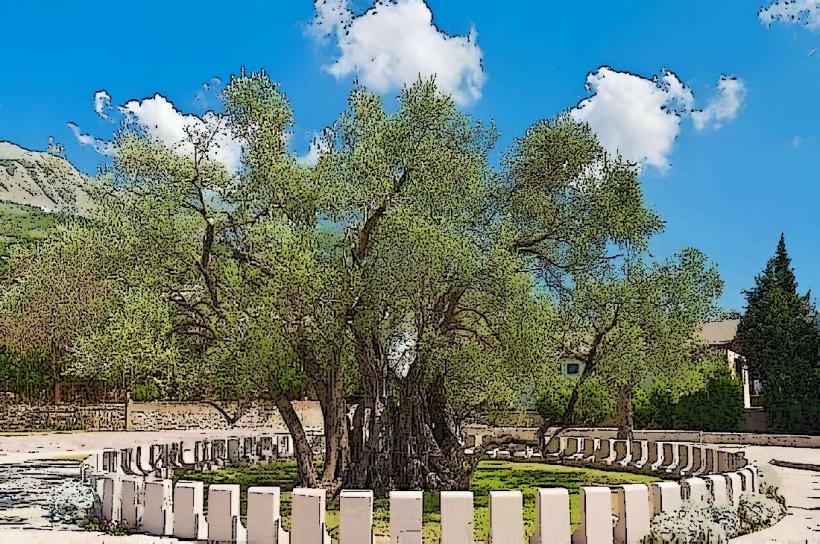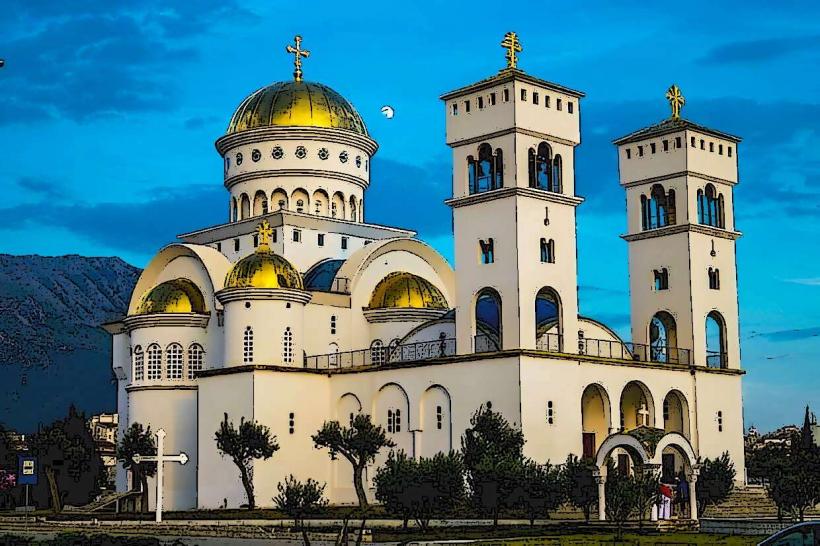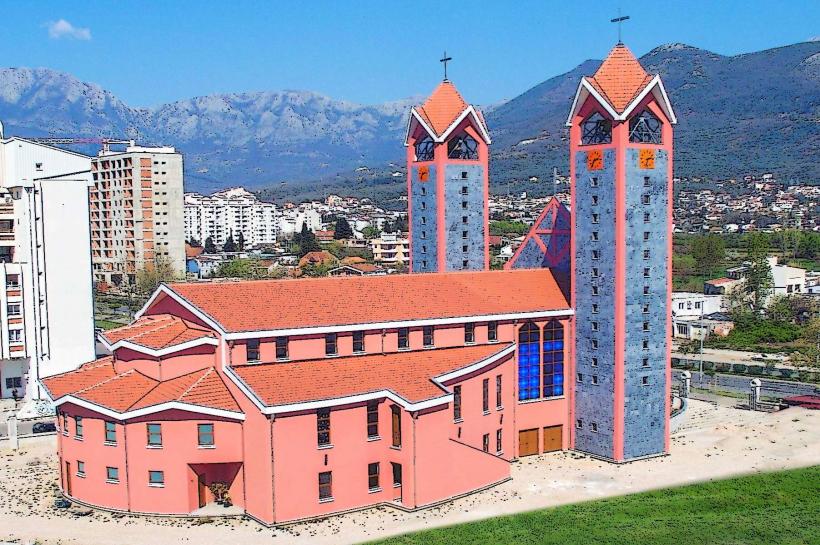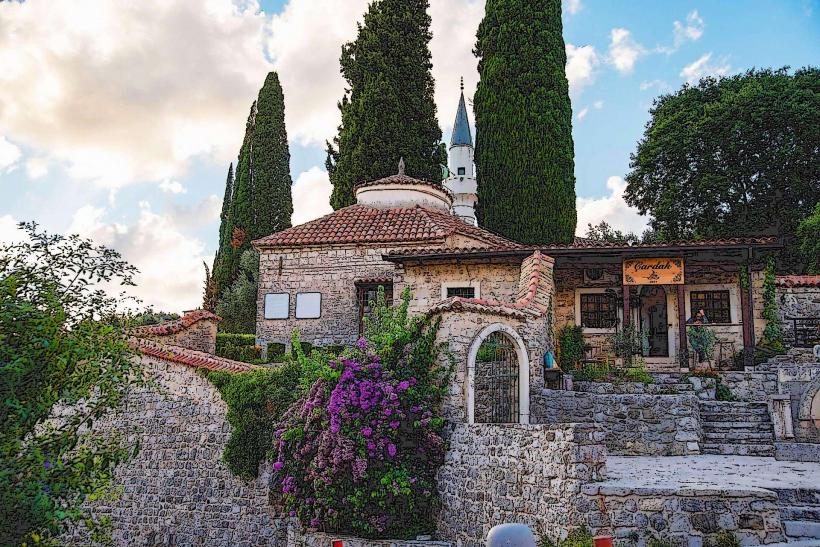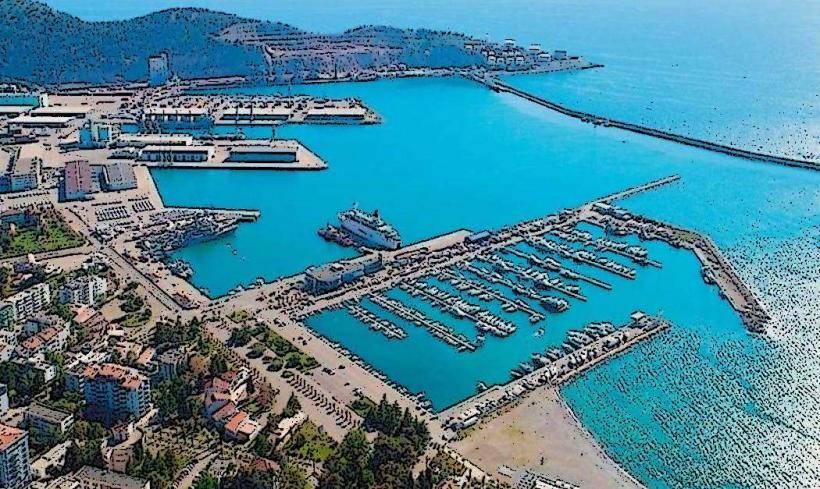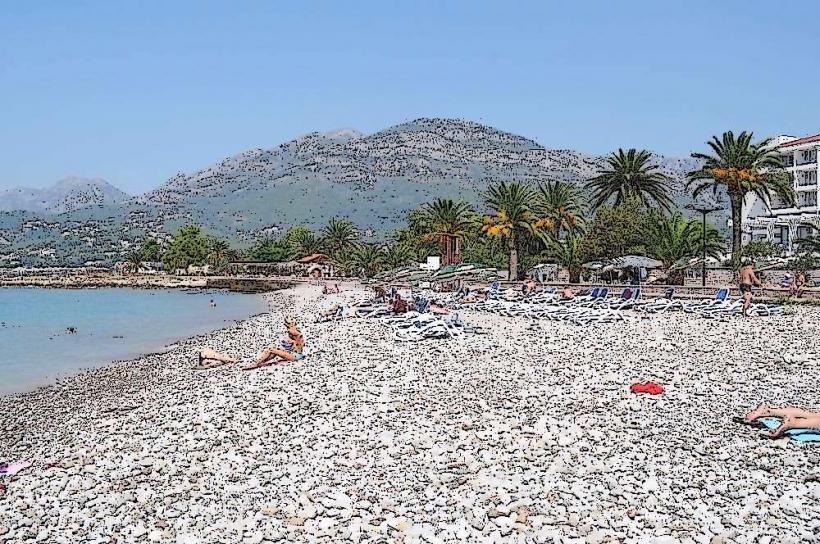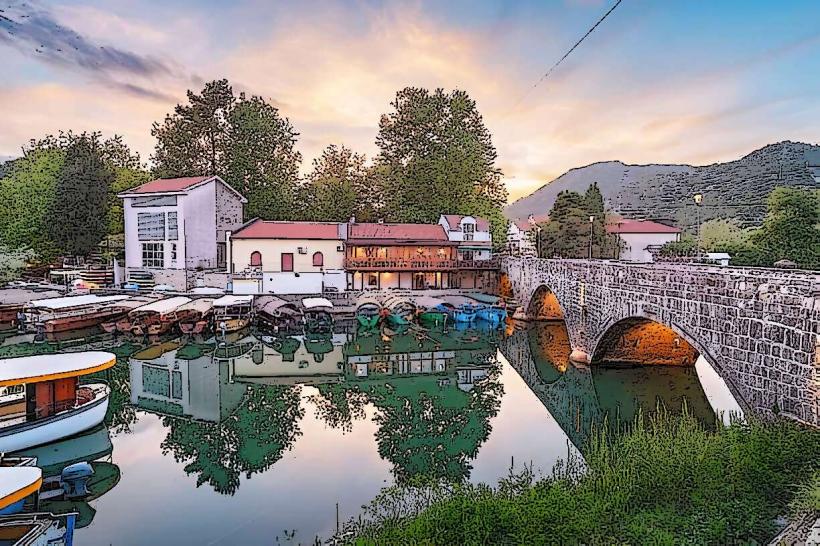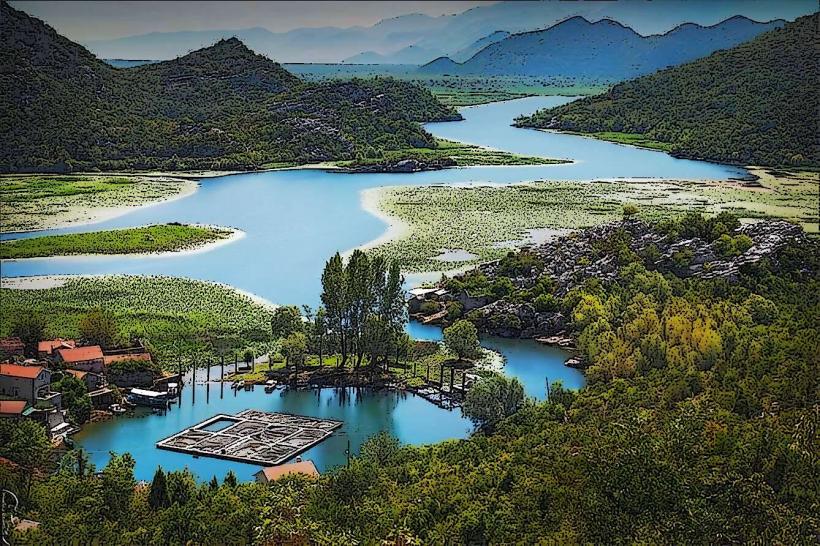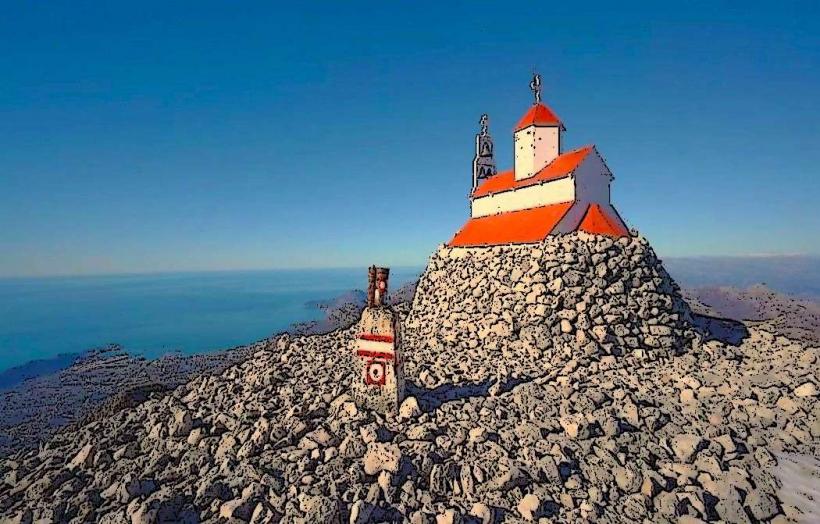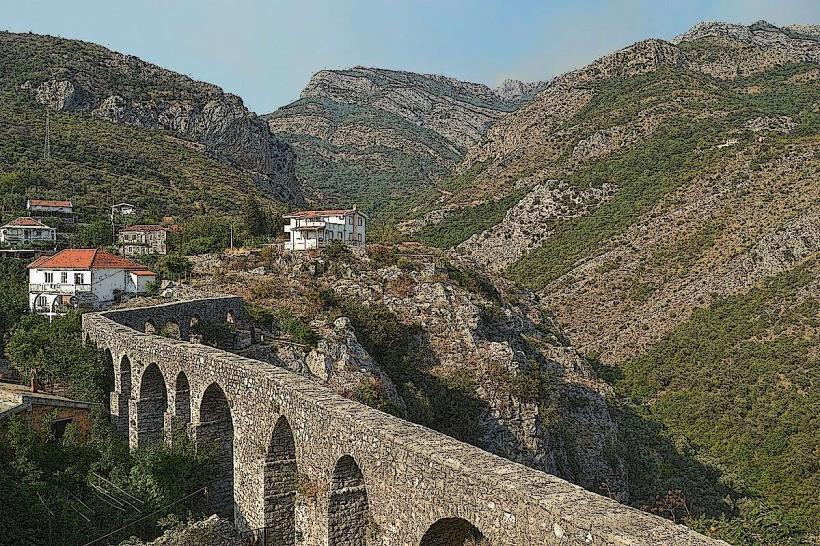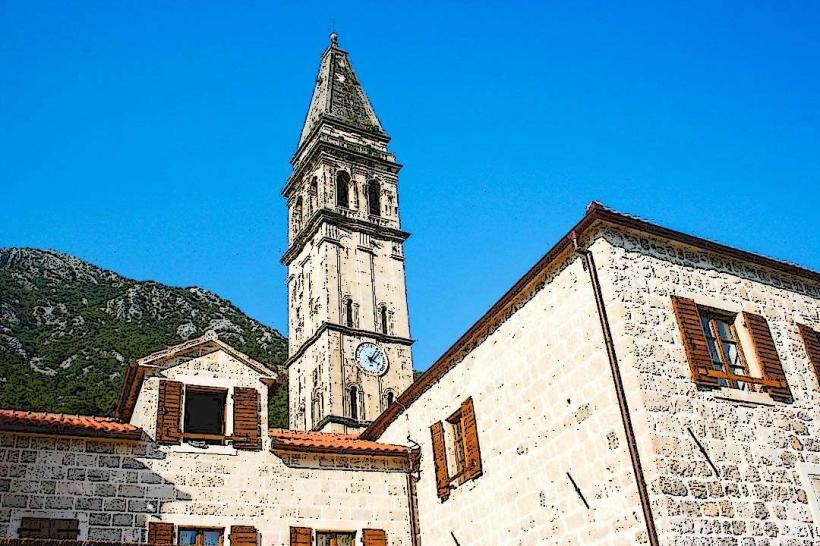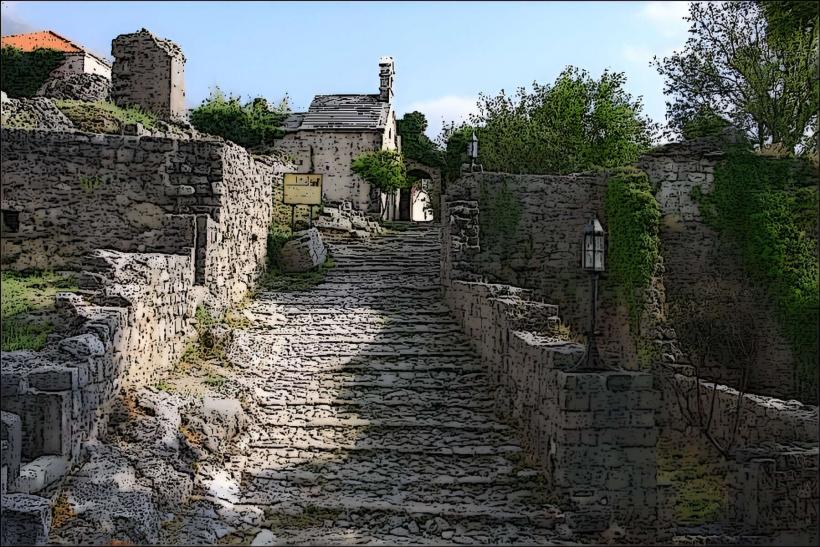Information
Landmark: Stari Bar (Old Bar)City: Bar
Country: Montenegro
Continent: Europe
Stari Bar (Old Bar) is a fascinating historic settlement located near the modern city of Bar, Montenegro. This ancient town, set against the dramatic backdrop of Mount Rumija, offers visitors a glimpse into Montenegro’s layered history, showcasing its Illyrian, Roman, Byzantine, Venetian, and Ottoman heritage. Today, Stari Bar serves as a prominent archaeological and cultural site, attracting visitors interested in its well-preserved ruins and atmospheric charm.
Historical Overview
Early Settlements:
- The area was first inhabited by the Illyrians, who recognized its strategic position for defense and trade. Later, the Romans established a settlement here, leaving their mark on the region’s infrastructure.
- The natural springs nearby made Stari Bar an ideal location for habitation and agriculture.
Byzantine Period:
- In the 6th century, Emperor Justinian I fortified the town, constructing walls and fortifications to protect against barbarian invasions.
- Stari Bar became an important administrative and military center within the Byzantine Empire.
Medieval Era:
- During the 10th century, Stari Bar flourished as part of the Serbian Kingdom. It became a hub of trade and culture, with churches and palaces constructed during this period.
- By the 14th century, it was under the control of the Venetian Republic, which fortified the town further to safeguard it against Ottoman advances.
Ottoman Rule:
- In 1571, the Ottomans conquered Stari Bar, and the town experienced a transformation. Mosques, hammams (baths), and other Ottoman architectural features were added.
- The town served as a key administrative center for the Ottomans, blending Islamic and Christian influences in its urban fabric.
Decline and Abandonment:
- A devastating earthquake in 1979 caused severe damage to the aqueduct that supplied water to the town. This event, combined with earlier shifts of the population toward the coastal plain, led to the abandonment of Stari Bar.
- Today, the ruins of Stari Bar stand as a monument to its rich and turbulent history.
Architectural and Archaeological Highlights
Stari Bar spans approximately 4.5 hectares, with a variety of ruins and structures that reflect its multicultural past.
City Walls and Gates:
- Encircling the town, the fortified walls feature towers and gates from Byzantine, Venetian, and Ottoman times.
- The main gate is an impressive example of medieval engineering and marks the entrance to the old town.
Religious Buildings:
- St. George’s Cathedral: Dating back to the 11th century, this Romanesque church was later converted into a mosque during Ottoman rule.
- St. Nicholas Church: Another significant medieval structure, now in ruins.
- Ottoman Mosques: Several mosques were constructed during Ottoman rule, including one with an elegant minaret that still partially stands.
Aqueduct:
- Built during the Ottoman period, this remarkable structure brought water from a nearby mountain spring to the town. Despite the earthquake damage, parts of the aqueduct remain intact and are a testament to Ottoman engineering.
Hammam (Turkish Bath):
- The ruins of the hammam highlight the cultural and social practices of the Ottoman era.
Residential and Commercial Structures:
- Visitors can explore remnants of homes, marketplaces, and administrative buildings that once formed the town’s bustling core.
Defensive Features:
- Bastions and Watchtowers: These provided strategic viewpoints and enhanced the town’s defenses, offering panoramic views of the surrounding landscape.
Cultural and Historical Significance
- Crossroads of Civilizations: Stari Bar reflects the confluence of different cultures, religions, and empires that shaped Montenegro’s history.
- Symbol of Resilience: The ruins, though weathered by time and conflict, stand as a testament to the resilience of the region and its people.
- Cultural Legacy: The site is a repository of Montenegro’s historical identity, drawing attention to its role as a meeting point between East and West.
Visitor Experience
Exploration:
- Visitors can roam the ruins at their own pace, discovering the remains of fortifications, churches, and Ottoman-era buildings. Informational plaques provide context at key points.
Scenic Views:
- The elevated position of Stari Bar offers stunning views of the Adriatic Sea, the modern city of Bar, and the rugged Mount Rumija.
Local Market:
- Just outside the entrance to Stari Bar, a lively market offers local products, including olive oil, figs, and handmade crafts.
Cultural Events:
- Stari Bar hosts cultural festivals, concerts, and historical reenactments, which bring the ancient ruins to life and celebrate Montenegro’s heritage.
Practical Information
- Location: Approximately 4 kilometers inland from the modern city of Bar.
- Access: Easily reachable by car, taxi, or local buses. There is a parking area near the entrance.
- Opening Hours: Open daily; hours may vary seasonally.
- Entrance Fee: A small fee is charged for access to the site, supporting its preservation.
- Best Time to Visit: Spring and autumn are ideal for visiting, as the weather is mild and the site is less crowded.
Preservation Efforts
Ongoing restoration projects aim to stabilize and preserve the ruins, ensuring that future generations can continue to explore and appreciate this historical treasure. The earthquake damage remains a reminder of the site’s vulnerability and the importance of conservation.
Conclusion
Stari Bar is a must-visit destination for history enthusiasts, culture lovers, and anyone seeking to immerse themselves in Montenegro’s rich past. Its atmospheric ruins, scenic location, and historical significance make it a jewel of the Adriatic and a key part of Montenegro’s cultural heritage.

